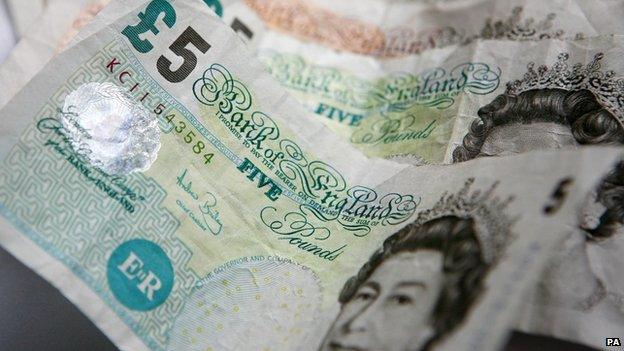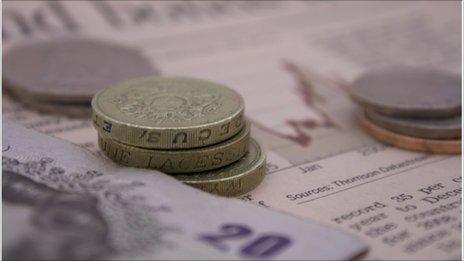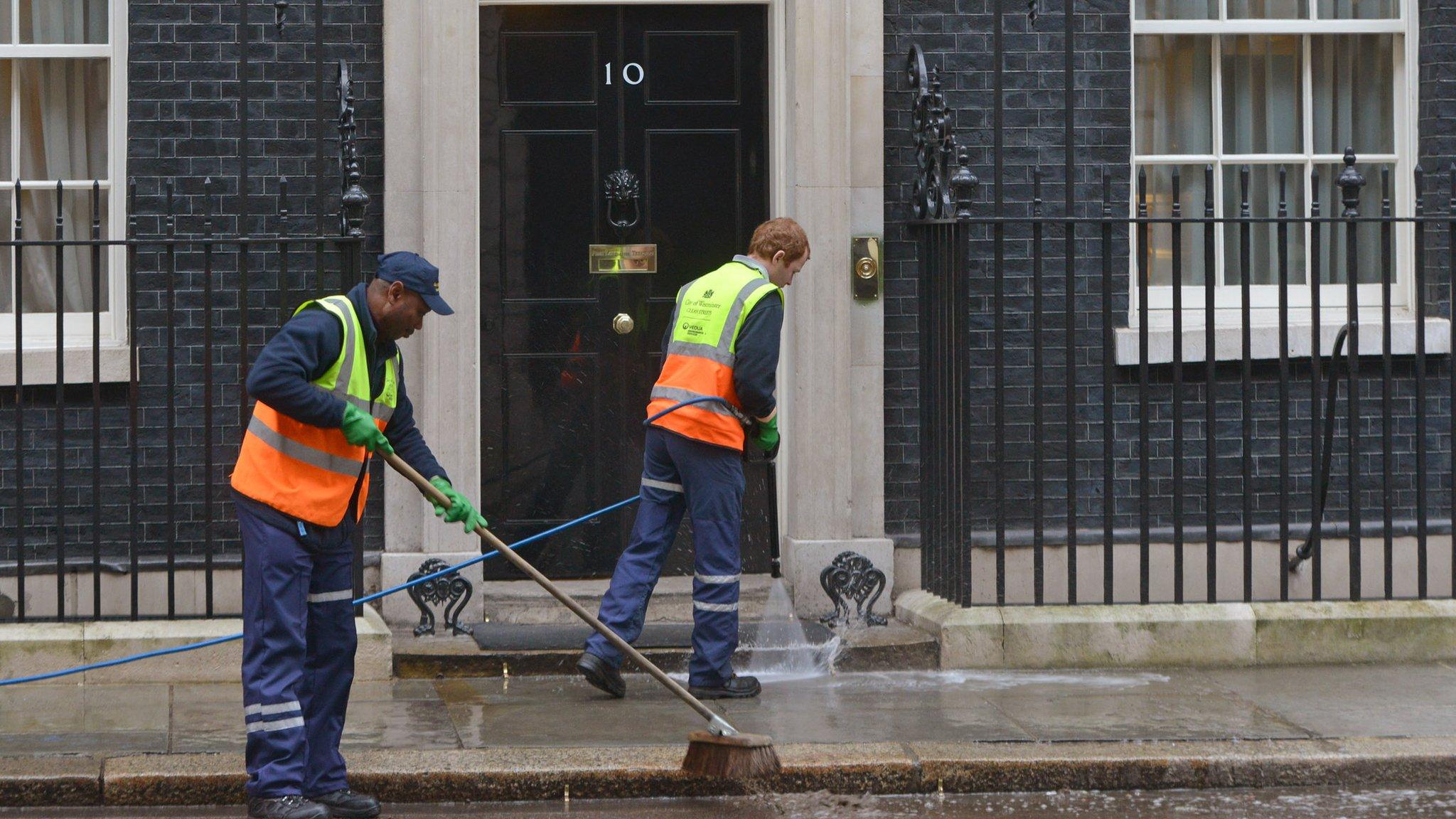Thousands of low-paid Britons set for pay rise
- Published

Thousands of UK workers are set for a pay rise after a surge in the number of companies signed up to the Living Wage.
The number of companies has more than doubled in the last year, meaning 35,000 low-paid workers will see their pay rise when the wage is increased on Monday, Citizens UK said.
The current Living Wage rate is £7.65 an hour, compared with the national minimum wage of £6.50.
The Living Wage reflects what workers require to meet their basic needs.
In London, the Living Wage is currently £8.80 an hour.
The rate is set by the Living Wage Foundation, part of the community organisation Citizens UK, and is calculated by the Centre for Research in Social Policy at Loughborough University. It has cross-party support.
Last week, research published by the Resolution Foundation think tank found that a record five million UK workers were in low-paid jobs, having risen by 250,000 in the last 12 months.
This was a problem for the government, it said, because it kept income tax revenues low.
'Costs taxpayer'
"The good news is that the number of accredited Living Wage employers has more than doubled this year - over 1,000 employers across the UK have signed up," said Rhys Moore, director of the Living Wage Foundation.
He added that the number of the companies signed up in the FTSE 100 had risen from four to 18, and included Canary Wharf Group and Standard Life. Nationwide and Nestle have also signed up.
"Low pay costs the taxpayer money - firms that pay the minimum wage are seeing their workers' pay topped up through the benefits system," he said.
The new higher rate of Living Wage will be announced at 00:01 GMT on Monday, while the rate for London will be announced by Mayor Boris Johnson later in the morning. Both will rise to reflect the higher costs of living.
A report by consultants KPMG revealing the number of workers being paid less than the Living Wage will also be released on Monday.
"Far too many employers are stuck in the spiral of low pay," said KPMG's Head of Living Wage Mike Kelly.
"Unless wages rise, a significant sector of the UK population will see themselves caught between the desire to contribute to society and the inability to afford to do so.
"The Living Wage may not be possible for every business, but is certainly not impossible to explore the feasibility of paying it."
Over the wider economy as a whole, wages are not rising as fast as prices, meaning real pay for many people is falling.
The latest figures show that average weekly earnings are rising by 0.9% excluding bonuses, below the rate of inflation, which is 1.2%.
- Published26 October 2014
.jpg)
- Published2 November 2014

- Published3 July 2014

- Published24 June 2014
